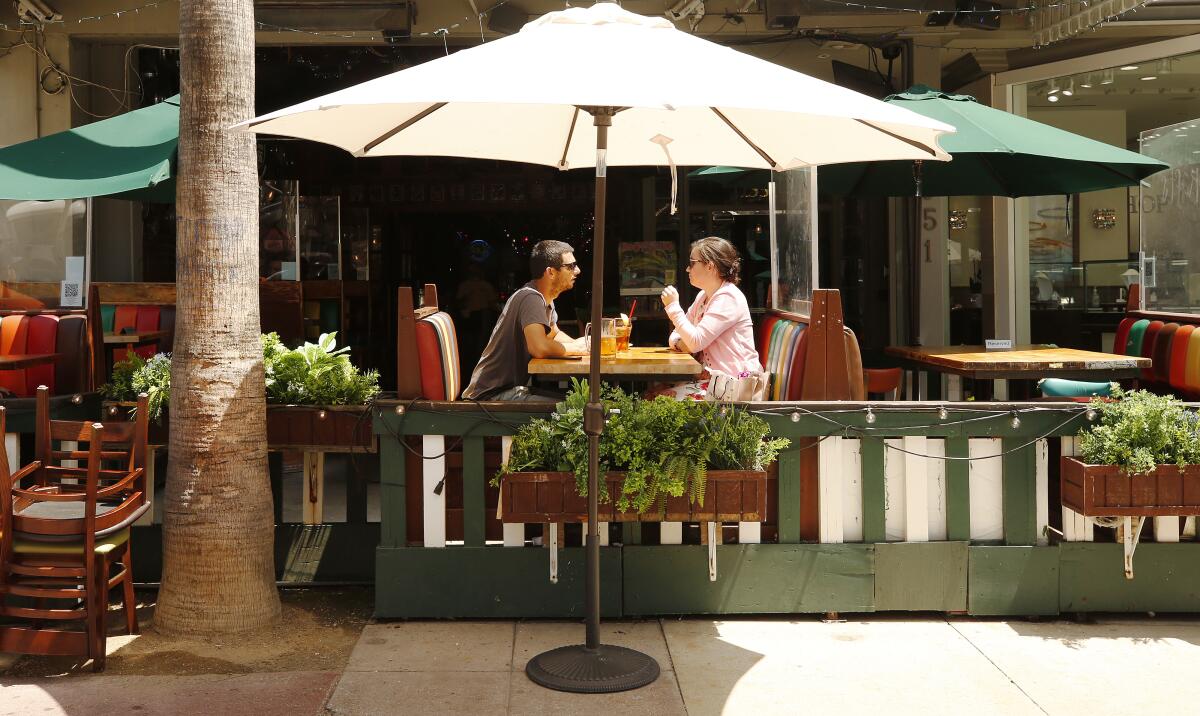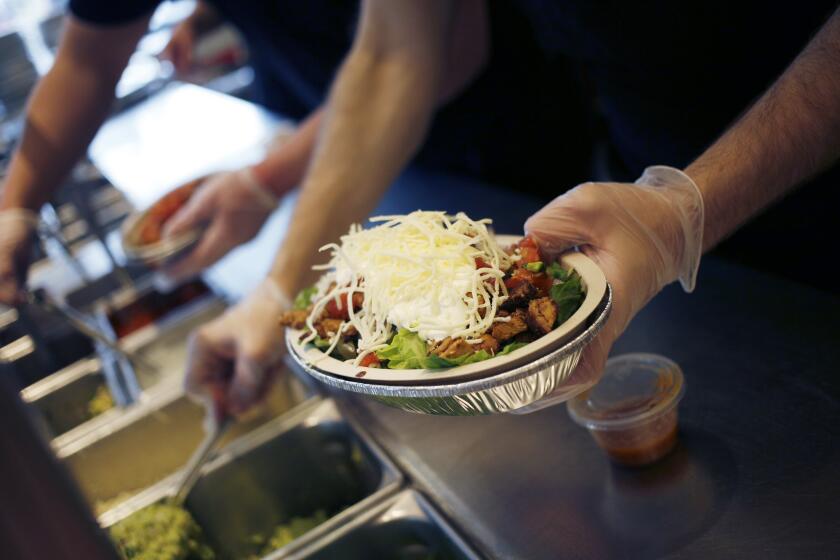California is making restaurants tell the truth about prices. Will it give you sticker shock?

California restaurants finally have their answer: They, too, must comply with a new state law that bans unadvertised fees, surcharges and other costs tacked onto the end of the bill.
Starting July 1, restaurants will join thousands of other California businesses, including event ticket sellers, short-term rental apps, hotels and food delivery services, that are required to include all mandatory fees and charges in the prices they display or advertise.
The state attorney general’s office gave conflicting statements in the weeks after Gov. Gavin Newsom signed the measure into law last year, telling some news outlets that restaurants could continue to keep their current prices while listing any surcharges on their menus, and others that the surcharges had to be included in the prices themselves.
On Wednesday Atty. Gen. Rob Bonta’s office released a set of guidelines to clarify that issue and answer other questions about how businesses must comply with the new law. Bonta sponsored the measure, Senate Bill 478, along with its co-authors, state Sens. Bill Dodd (D-Napa) and Nancy Skinner (D-Berkeley).
For restaurants, that means it will no longer be enough to just list service charges and surcharges on a bill or a menu’s fine print. Instead, these charges must be included in the prices printed on the menu.
For example, a $20 mole enchilada at a restaurant that levies a 5% fee to cover employee health costs will have to be listed on the menu as a $21 mole enchilada. And a flier advertising a $10 lunch buffet at a restaurant that adds a mandatory 10% “service charge” will have to refer to the offer as an $11 lunch buffet.
A state ‘junk fees’ law might ‘upend’ how restaurants operate. Customers could face sticker shock when fees are rolled into menu prices.
In a statement, the Golden Gate Restaurant Assn. said Bonta’s guidelines “will create significant challenges for the restaurant industry moving forward.”
The association, which advocates for the restaurant industry, argues that by prohibiting the longtime practice of using service charges to increase staff pay or cover the cost of local ordinances — such as San Francisco’s requirement that businesses spend at least a minimum amount on healthcare services — the law will compound the problems faced by an already struggling industry.
“Diners will not pay less, instead they will see significant menu price increases, which we believe will further cause them to pull back on dining out,” the statement said. “Not only will restaurants struggle, but workers will lose hours and jobs.”
With few exceptions, businesses of all sorts across California will not be able to advertise, display or offer a price for their goods or services that does not include all of the “mandatory fees or charges” other than government-imposed taxes or fees or reasonable shipping costs, according to the measure’s authors.
“Put simply, the price a Californian sees should be the price they pay,” Bonta’s office said in a news release.
The new law doesn’t dictate what companies charge for their goods or services. Businesses will still be able to set prices, but the posted price will need to match the full amount a customer will see on their final bill.
An L.A. restaurant is imposing a ‘security charge’ on diners’ bills, but that might change soon — a new state law bans unadvertised service fees.
Though businesses can exclude taxes and shipping charges, handling fees must be included. In other words, actual postage or delivery charges can be excluded, while the cost of pulling an item off a shelf and taking it to a shipping company has to be included in its advertised price.
Separate fees for optional services or features do not need to be advertised. This could extend to a bevy of industries and services — for example, the amount an airline charges for a seat upgrade or checked bags.
What about late fees or extra charges for customers who smoke in a hotel room? Because those charges can be avoided, they do not have to be advertised, according to the guidelines from Bonta’s office.
Businesses will not be allowed to skirt the law by advertising one price and then letting customers know that additional fees might be added later. A business can, however, list the full price of its product and provide customers a breakdown of all the fees that are included.
Bonta also offered some guidance for businesses that say they do not know up front what the final cost will be once their work is done. Such businesses “should wait to display a price until they know how much they will charge,” the guidelines say.
This could affect how live music fans interact with ticket sellers for concerts and other live events. The nonprofit watchdog Consumer Reports noted that hidden fees can increase the price of live-event tickets by 30% to 40%.
Fast-food chains are looking to hike the cost of menu items because they’re required to pay their employees $20 an hour starting Monday.
Live Nation Entertainment, parent company of ticketing giant Ticketmaster, said in a statement that it supported SB 478 and has already offered all-in pricing at some venues and festivals across the country. “Unfortunately, we routinely see resellers defy state laws requiring all-in pricing which confuses and harms fans, so we strongly encourage regulatory scrutiny to ensure compliance across the industry,” the company said.
The Virginia-based Travel Technology Assn., a global network of online travel agents, said it views transparency as a top priority but opposed SB 478 and would rather see a uniform national standard for regulations on lodging prices.
“We take this position to create uniformity and certainty for lodging operators, travel technology companies, and most of all, travelers, who will have a better understanding of what is included in advertised prices for trips both in and out of their home state,” President and Chief Executive Laura Chadwick said in a statement.
The online travel company Expedia opposed the bill for similar reasons.
In response to the argument, Bonta said that California does not need to wait for federal action to ensure transparency for consumers. The practice of hiding mandatory charges, he said in a statement, “is deceptive and unfair to consumers wherever it occurs — not just in certain industries.”
More to Read
Sign up for Essential California
The most important California stories and recommendations in your inbox every morning.
You may occasionally receive promotional content from the Los Angeles Times.















